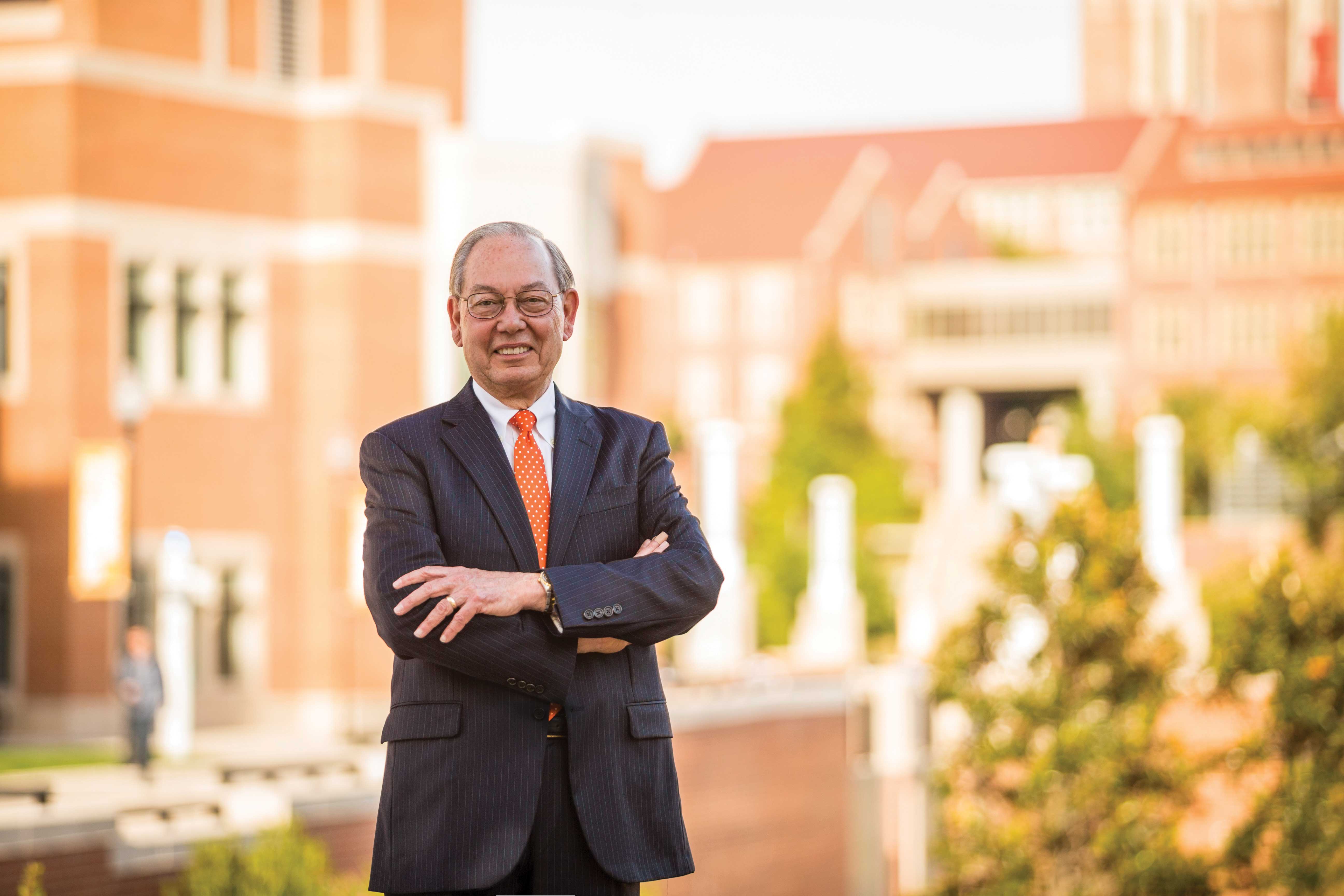Jimmy Cheek stepped down from his role as chancellor of the University of Tennessee, Knoxville, in 2016. Since that time, he has returned to the faculty to teach classes on leadership and help launch the Postsecondary Education Research Center.
What is PERC?
The Postsecondary Education Research Center (PERC) will identify and coordinate research initiatives design to enhance higher education at the institutional, state, and national levels. The ultimate purpose of this research is to enhance policy
and practices.
The center’s highest priority is the completion agenda—how community colleges and universities can retain and graduate more students in a timely manner. This is critical to meet the goal of 55 percent of the state’s population with a postsecondary education certificate or degree by 2025.
We are developing partnerships with organizations such as Tennessee Board of Regents and Tennessee Achieves. We are also collaborating with faculty outside of the college, as well as other centers on campus such as the Boyd Center. I have the privilege of serving as director, and Patrick Biddix is the associate director.
Why is PERC’s mission important?
PERC’s mission is critical to improving higher education in Tennessee. At UT, we have done stellar work in improving graduation and retention rates. At community colleges across the nation, improvement of retention and graduation rates is a high priority. So, there is still much work to be done. The center will evaluate and recommend effective strategies to improve graduation student outcomes, reduce student debt at graduation, develop strategies for more effective use of financial aid, and examine strategies such as micro-grants to encourage retention of low income students.
What do you miss most about being chancellor?
First, let me say that I thoroughly enjoyed my eight years of service as chancellor. It was the best job I have ever had and the job that I have enjoyed the most in my career.
The things I miss most are the interactions with administrators, faculty, staff, and students. I also miss the opportunity to work directly with our alumni and student leaders.
What is your definition of a good leader?
Leadership is creating a bold and compelling vision and having the influence to convince others to embrace the vision and implement it with dispatch. Leadership involves creating goals with metrics and evaluating how well those goals are achieved.
I believe that an effective leader must continually help the organization focus on its goals and make certain that everyone is working urgently to achieve them. A leader must
also instill hope and inspire people to achieve beyond their wildest dreams, and by working together as a team pursue our goals with abandon. Leaders turn vision into action and
positive results.
How do you like being a faculty member again?
In 1992, I left my faculty position to become an associate dean, then a dean, then a senior vice president of the University of Florida. I came here in 2009 to serve as chancellor and became a Tennessee Volunteer. Now I’m back in my faculty role, and I am thoroughly enjoying being a professor. It is a great opportunity to interact with our fantastic students, faculty,
and staff.

